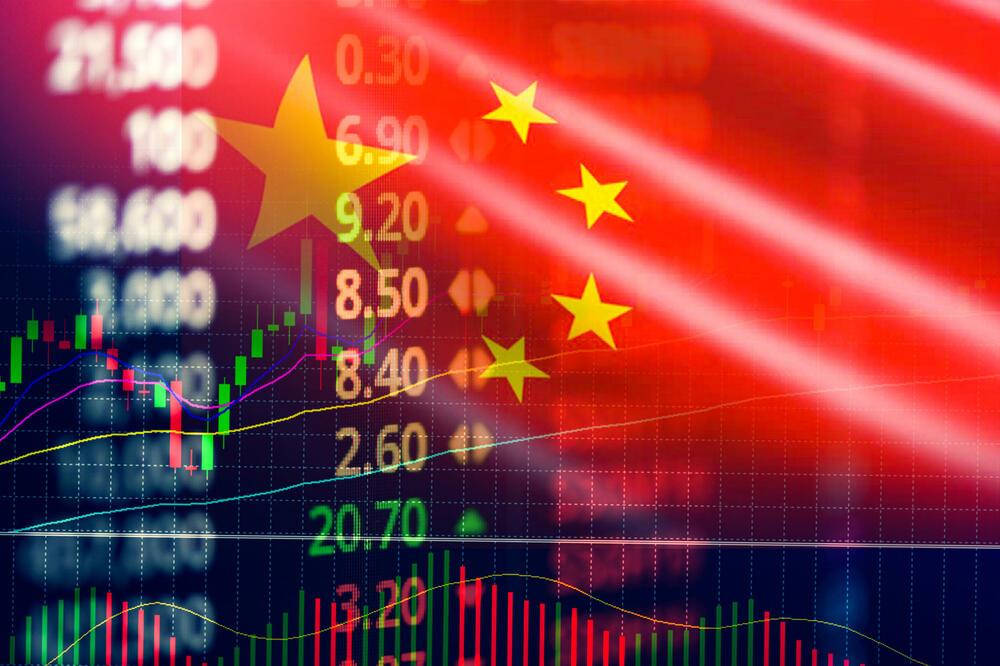At this year's China Development Forum (an annual top-level gathering that brings together China's policymakers, leaders of leading companies, current and former senior civil servants and economics professionals like myself), the discussion focused on the risk of China ending up in a "middle-income trap." . It is well known that the number of developing economies that have managed to enter the group of high-income countries is very small.
Will China be an exception? After 30-plus years of growth rates of nearly 10 percent, economic growth in China has slowed sharply. Even last year, with a strong post-pandemic stimulus, the officially determined growth rate was only 5,2 percent. To make matters worse, the International Monetary Fund forecasts that growth in China will decline to 2028 percent by 3,4, and given current policies, many analysts estimate that it will be only 3 percent at the end of this decade. If that happens, China will indeed find itself in a middle-income trap.
China's problems are structural, not cyclical in nature. Among other things, the slowdown is a consequence of the rapid aging of the population, the collapse of the real estate bubble, huge private and public debt (now close to 300 percent of GDP), as well as the move away from market-oriented reforms and the return to state capitalism. There is also the problem of excessive investment fueled by loans granted by state banks to state enterprises and local government bodies. Also, the state was often hostile towards companies in the technology sector and other private enterprises, which undermined business confidence and threatened private investment.
It seems that with the beginning of a new era of deglobalization and protectionism, China has reached the ultimate limits of export-based growth. Technological sanctions introduced by Western countries for geopolitical reasons limit the growth of the high-tech sector in China and reduce the inflow of foreign direct investments; growth is further hampered by the combination of a high savings rate and low household consumption (due to a weak social welfare system and low household incomes).
The old growth model no longer works. Initially, low (and hence globally competitive) wages ensured that China could rely on light industrial production and exports, before embarking on major investments in infrastructure and real estate. Now the Chinese authorities are advocating high-quality economic growth that will be based on technologically advanced manufacturing and exports (electric vehicles, solar panels, and other ecological and high-tech products), which will be stimulated by additional financial incentives to already oversized state-owned enterprises. But without a corresponding increase in domestic demand - and especially personal consumption - overinvestment in these sectors will lead to the construction of overcapacity and driving down prices in global markets.
China's oversupply (relative to domestic demand) is already producing deflationary pressures and increasing the risk of prolonged secular stagnation. While China's economy was smaller and poorer, global markets could absorb the surge in Chinese exports relatively easily. Today it is the second largest economy in the world. The world will respond to any new attempt to get rid of excess supply by increasing exports with draconian tariffs and other protectionist measures targeting Chinese products.
China needs a new growth model focused on services in the domestic market - instead of goods - as well as personal consumption. By global standards, the share of services in China's GDP is insufficient, and although policymakers in China talk about the need to boost domestic demand, they do not yet seem ready to adopt the fiscal and other policies needed to boost personal consumption and reduce savings in households. This includes improving pension benefits, improving health care, introducing unemployment insurance, granting permanent residence to itinerant rural workers who currently do not have access to public services in cities, increasing real wages (relative to inflation) and taking measures to redistribute the profits of state-owned enterprises. households, so that they can increase consumption.
While it is clear that China must restore private sector confidence and revive growth by introducing a more sustainable economic model, the question is whether Chinese leaders understand the challenges ahead. While President Xi Jinping worked to return to a regime of state capitalism in the previous decade, Premier Li Keqiang - known as a market-oriented reformer - was sidelined. Li did not hold the usual press conference after the recent National People's Congress, nor did he meet with the full foreign delegation at the latest China Development Forum. Instead, Xi himself hosted a smaller delegation of foreign business leaders.
The most optimistic interpretation of these signals would be that Xi realized that he had to animate the private sector and international multinational corporations, in order to regain their confidence and encourage foreign direct investment and growth brought about by private sector investment and personal consumption. Since Li is still in the position of prime minister, it is possible that he is the one who advocates for "opening up and reforms", but he does so behind the scenes so as not to provoke President Xi.
However, most commentators offer less optimistic interpretations. They note that after ousting market-oriented technocrats such as Premier Li, former Premier Li Keqiang, former People's Bank of China Governor Ji Gang, advisers such as Liu He and Wang Qishan, as well as many financial experts, Xi established new party committees to economic and financial issues that will have primacy in relation to state bodies. He surrounded himself with advisers such as He Lifeng, the vice-premier for the economy, and Zheng Shanji, the new head of the State Development and Reform Commission. Both are sympathetic to the outdated dogma of state capitalism.
Making statements and repeating mantras about reforms and attracting foreign investment do not mean much. What is crucially important are the policies that China will implement in the coming year. It will show what the prospects are for it to escape the middle-income trap and return to a strong growth path.
(Project Syndicate; Peščanik.net; translation: Đ. Tomić)
Bonus video:





